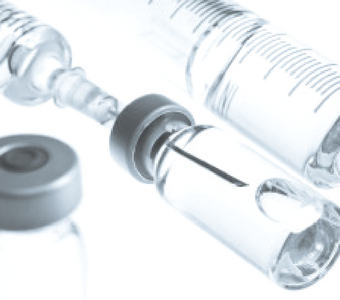Gilead Sciences announced Tuesday morning that its Hepatitis C (HCV) candidate sofosbuvir (formerly GS-7977) in combination with ribavirin attained a 78% Sustained Virologic Response (SVR) in Genotype 2 and 3 HCV patients. Analysts and investors have raised the bar considerably for Gilead’s HCV data, and while today’s news is positive for the company (although not highly determinant), GILD traded down at the open. Gilead may, in fact, have set its own high standards by reporting earlier this month that its two-drug regimen (sofosbuvir plus the NS5A inhibitor GS-5885) with ribavirin produced a 100% SVR (cure) rate in Genotype 1 patients. The trials, however, are distinctly different considering size, drug combinations, and varying patient populations. Further studies testing Gilead’s full regimen – sofosbuvir, GS-5885 and ribavarin – are ongoing, and will be demonstrative of the combination’s full effects.
Genotype 2 and 3 patients are far more responsive to treatments than their genotype 1 counterparts, and analysts expect these patients to be the first successfully treated by all-oral regimens. Genotypes 2 and 3 also represent a much smaller portion of the population in the U.S., roughly 20%, although they are more prevalent than genotype 1 in parts of the Middle East and Asia. While notable, the data are not crucial to Gilead’s proposed regimen, but will be important to an approval from the FDA. The company has two more trials ongoing for genotype 2 and 3 patients, testing sofosbuvir in combination with peg-IFN and ribavirin, and plans to submit sofosbuvir to the FDA in 2013. The sofosbuvir/GS-5885 combination remains in the spotlight, however, considering the larger genotype 1 market and the regimen’s impressive efficacy in previous trials. Expectations are for the full regimen to produce close to a 100% SVR, hence Tuesday’s mixed response from the market.
PropThink previously noted the arguably overestimated HCV market, suggesting that Gilead’s acquisition of Pharmasset last year may have been overpriced. We do, however, like Achillion Pharmaceuticals’ (NASDAQ:ACHN) differentiated approach to the segment, particularly after a recent pull-back from the stock. Read more about ACHN’s protease inhibitors here, in our previous coverage.



